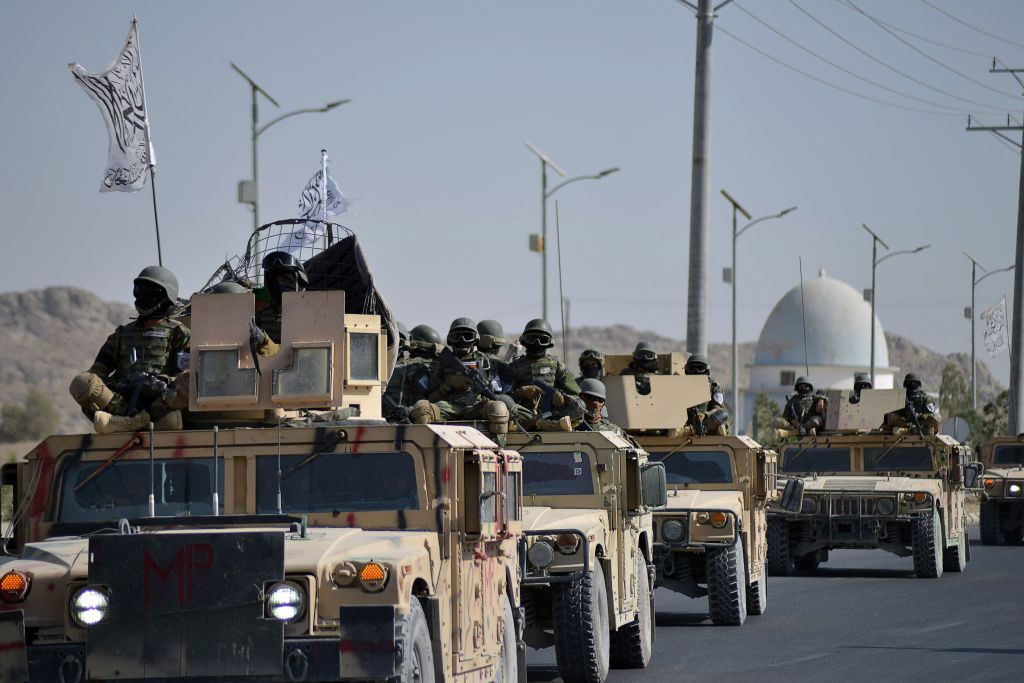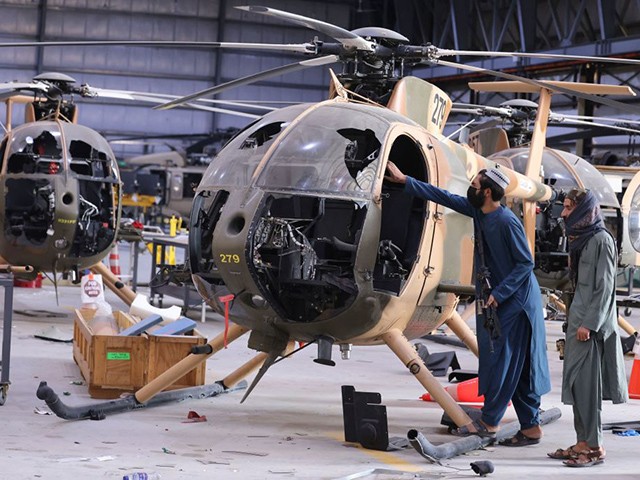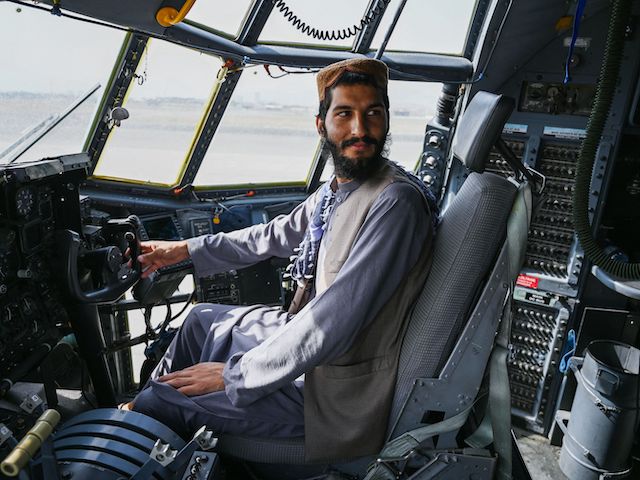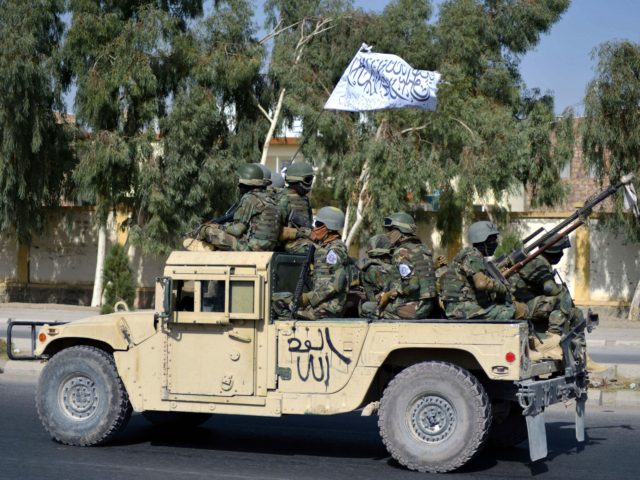The human rights organization Amnesty International denounced the Taliban for weeks of “repeated war crimes and relentless bloodshed” on Wednesday in an analysis of the final days of the U.S.-backed Afghan government.
The group accused the Taliban of continuing its violent onslaught after seizing power in the country on August 15 and demanded that the International Criminal Court (ICC) – a global institution set up to prosecute war crimes, crimes against humanity, and genocide – investigate the incident and hold those responsible accountable.
The Amnesty report followed a brutal assessment of the situation in Afghanistan from the United Nations on Tuesday, which found proof dozens of extrajudicial killings nationwide following the Taliban takeover.
The Taliban became the functional government of Afghanistan after a 20-year war against the United States in August. After decades of terrorism that primarily impacted civilians, the Taliban greatly increased its attacks after President Joe Biden announced he would violate an agreement that predecessor Donald Trump brokered with the Taliban that would see American forces leave by May 2021. Biden extended the war through August, to which the Taliban responded by announcing that it would no longer abide by its promise to rein in attacks on foreign forces and cut ties to other jihadist terrorist groups like al-Qaeda.
Taliban jihadists stormed Kabul, the capital of the country, on August 15, shortly after the last American troops abruptly left and then-President Ashraf Ghani fled the country.

Taliban forces from the Al-Badr military corps sit on abandoned U.S. armed vehicles during a parade in Kandahar on November 8, 2021. (JAVED TANVEER/AFP via Getty Images)
“The months before the government collapse in Kabul were marked by repeated war crimes and relentless bloodshed committed by the Taliban, as well as deaths caused by Afghan and US forces,” Amnesty International Secretary-General Agnès Callamard said in a report on Wednesday, according to the Afghan broadcaster Tolo News. “Homes, hospitals, schools and shops were turned into crime scenes as people were … killed and injured. The people of Afghanistan have suffered for too long, and victims must have access to justice and receive reparations.”
The Amnesty International report itself accused the Taliban of “torture and extrajudicial killings” in high volume during the last months of the Afghan War.
“The report, quoting the United Nations Assistance Mission’s (UNAMA) findings, said that in the first six months of 2021, civilians’ fatalities increased by 47 percent against last year,” Tolo News relayed. “UNAMA has reported that in the first half of 2021, 1,659 civilians were killed, and 3,524 others were wounded as a result of the ongoing fighting.”
“The International Criminal Court must reverse its misguided decision to deprioritize investigations into US and Afghan military operations, and instead follow the evidence on all possible war crimes, no matter where it leads,” the report demanded.
The ICC had denied the prosecutor’s request to investigate Afghanistan in 2017 but decided to go forward with an investigation in 2020, but deferred that investigation to the Ghani government. In September, the office of ICC prosecutor Karim A. A. Khan issued a statement announcing he would retake the lead in the investigation but focus only on the Taliban and Islamic State, “cognizant of the limited resources available to my [Khan’s] Office relative to the scale and nature of crimes within the jurisdiction of the Court.”
The Taliban terrorist organization is strutting and bragging that the Biden administration has agreed to provide aid to Afghanistan. https://t.co/5X1hHMUPTY
— Breitbart News (@BreitbartNews) October 12, 2021
“After reviewing matters carefully, I have reached the conclusion that, at this time, there is no longer the prospect of genuine and effective domestic investigations into Article 5 crimes within Afghanistan,” Khan wrote, warning other parties besides the targeted jihadist groups that “under both the Rome Statute and customary international law, there is no statute of limitations for war crimes or crimes against humanity.”
The Amnesty report follows a dire update on the situation in Afghanistan from the United Nations. U.N. Deputy High Commissioner for Human Rights Nada Al-Nashif briefed the Human Rights Council – which counts as members some of the world’s most egregious human rights violators – on Afghanistan on Tuesday, finding a sharp increase in abuses against children in particular and growing economic and moral concerns.
“Before the Taliban takeover, this year had already seen the highest number of civilian casualties on record, with women and children representing close to half of all civilian casualties,” Al-Nashif said.

Taliban fighters check the cockpit of a damaged Afghan Air Force helicopter at a hangar at the airport in Kabul on September 14, 2021. (Karim Sahib/AFP via Getty Images)

A Taliban fighter sits in the cockpit of an Afghan Air Force aircraft at the airport in Kabul on August 31, 2021.(Wakil Kohsar/AFP via Getty Images)
“Since August, the harm to civilians due to fighting has receded to a degree, but civilians nevertheless continue to fall victim and remain at risk as ruthless campaigns of lethal attacks are still being carried out by the Islamic State Khorasan Province (ISIL-KP) armed group as well as by other armed groups.”
Al-Nashif documented “more than 100 killings of former Afghan national security forces and others associated with the former Government, with at least 72 of these killings attributed to the Taliban.”
“In several cases, the bodies were publicly displayed. This has exacerbated fear among this sizeable category of the population,” the commissioner noted.
Al-Nashif also noted a marked increase in Taliban recruitment of boy soldiers “visible among security forces at checkpoints, as bodyguards, and in combat roles.” Girls, meanwhile, are suffering the deprivation of nearly every basic right, prominently including the right to an education.
Taliban terrorists co-opt woke global warming rhetoric. https://t.co/61fQYh9GzP
— Breitbart News (@BreitbartNews) August 25, 2021
The Taliban denied any allegations of human rights violations, particularly revenge killings of individuals with ties to the former Afghan government, which the jihadists claimed they would not engage in.
“All those in the opposite side are pardoned from A to Z,” Taliban spokesman Zabihullah Mujahid said in August. “We will not seek revenge.”
Al-Nashif blamed the situation in Afghanistan in part on the fact that international institutions and foreign banks in places like the United States have not agreed to free Afghan government assets to the Taliban on the grounds that the terrorist organization is not a legitimate government. Both the World Bank and the International Monetary Fund (IMF) have frozen major Afghan government assets on human rights grounds.
On Tuesday, Press Secretary Jen Psaki insisted that Washington would not support funding the Taliban because the Taliban is a terrorist organization – although not listed as such in America – and doing so would disrespect the families of the victims of the September 11, 2001, terrorist attacks. The attacks prompted the Afghan War due to the Taliban harboring al-Qaeda terrorists in the country.

COMMENTS
Please let us know if you're having issues with commenting.